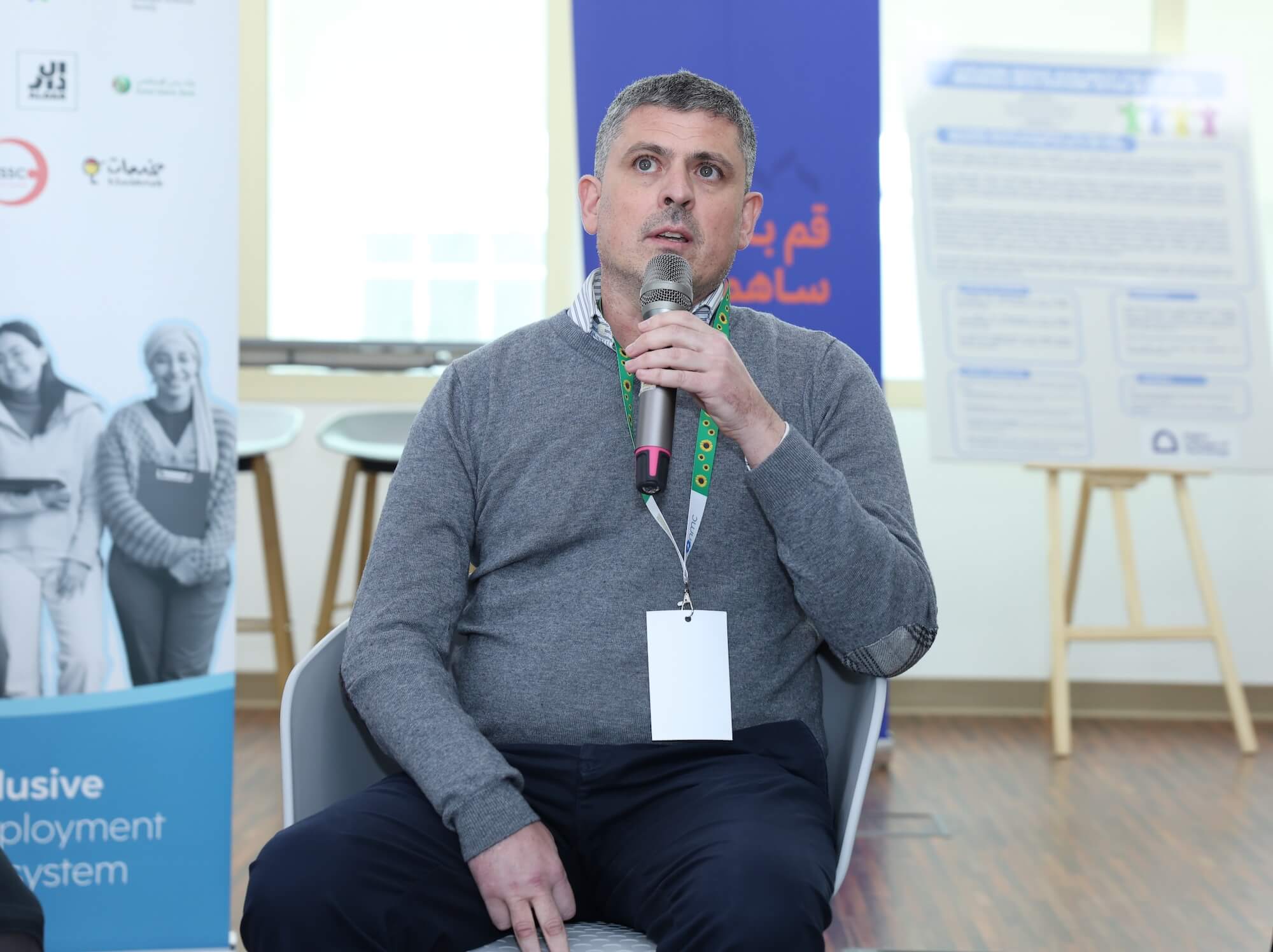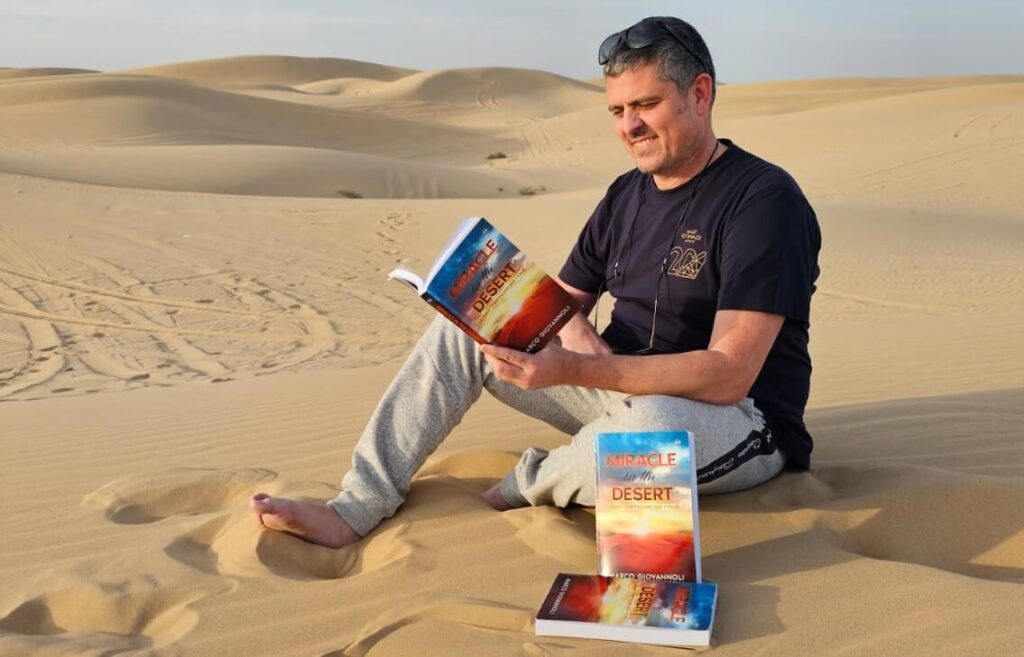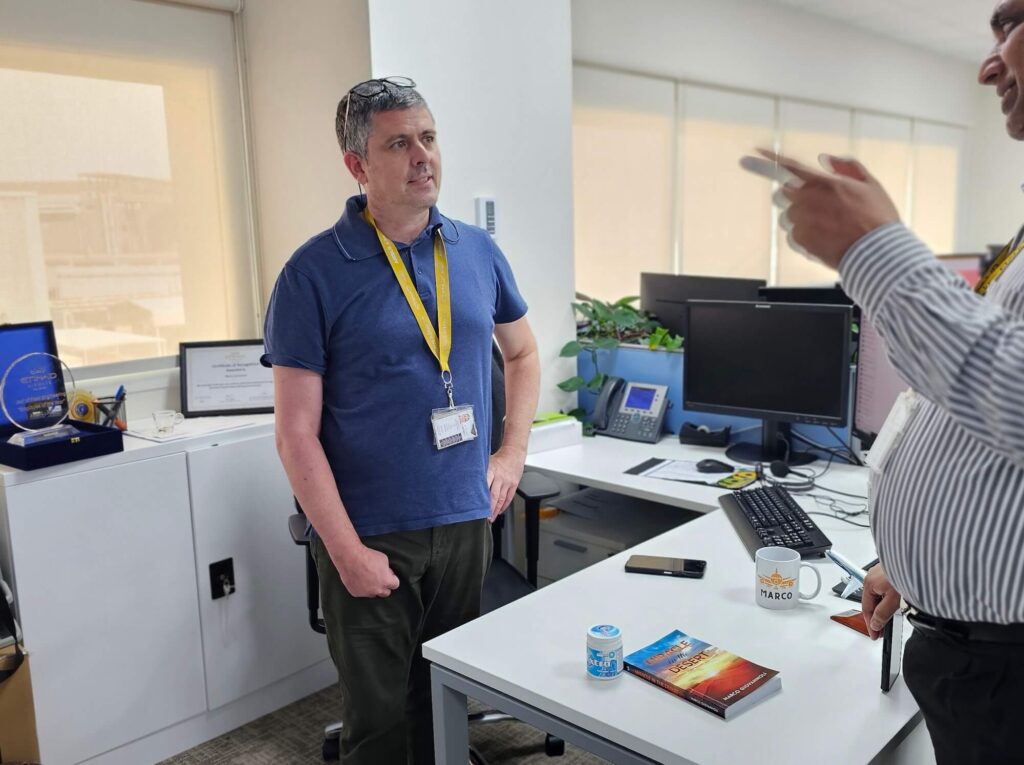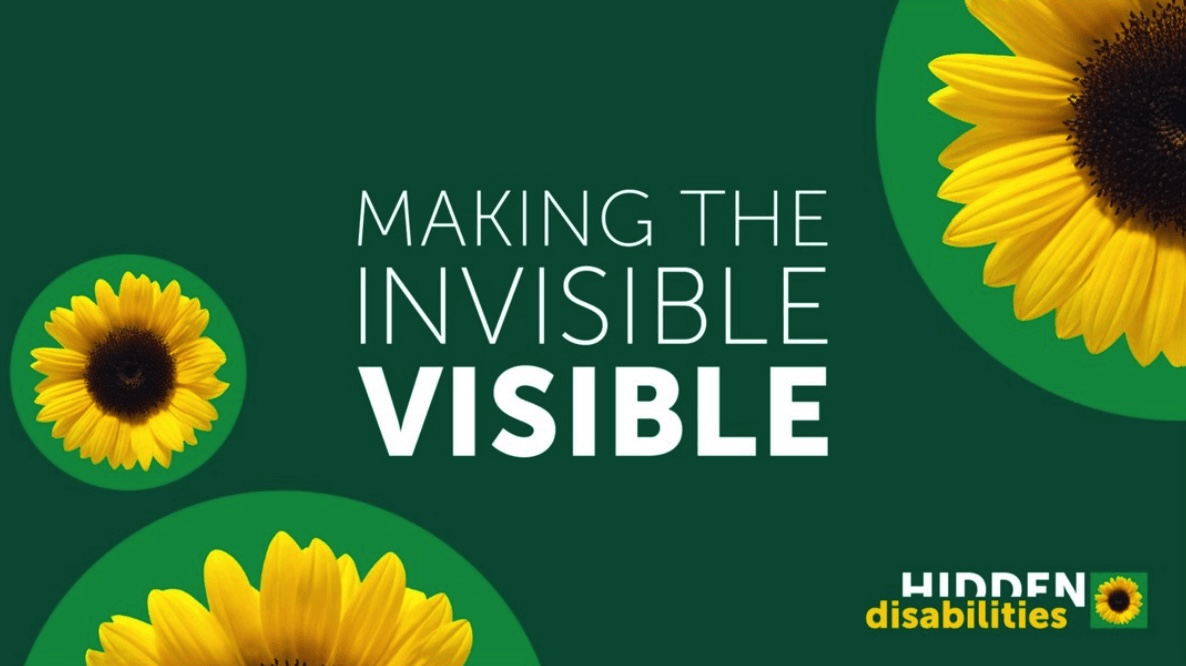





Marco Giovannoli, an Etihad engineer and author of Miracle in the Desert, shares his journey of stroke recovery, offering insights on transitioning back to work and embracing a new approach to his profession
Marco Giovannoli’s life changed instantly in 2022. At 46, the senior aeronautical engineer at Etihad suffered a stroke during his regular 10km run in Abu Dhabi.
The stroke, he said, left him with physical disabilities and emotional scars.
He now has severe weakness and spasticity in his upper and lower right limbs. His right hand is non-functional, with clenched fingers, and he has no control over his right ankle or foot.
Although he can walk independently, he struggles with spatial awareness on his right side, making confined spaces difficult to navigate.
“Fortunately, my disabilities are physical, with no cognitive impairments and only a mild speech disorder. I was cleared to return to work just five months after my stroke,” he says.
“My role as an aeronautical engineer is mostly intellectual, which allowed me to resume my professional responsibilities.”
Stroke impacts around 10,000 people annually in the UAE. While 85 per cent survive, more than half face long-term disabilities.
It is the second leading cause of disability in the country, following road accidents.
Globally, studies reveal that fewer than 50 percent of stroke survivors return to work, often encountering significant and unique challenges.
Mr Giovannoli said not returning wasn’t an option because “work isn’t just a job; it’s part of my identity and I needed to reclaim it.”
He has captured his journey of self-discovery and recovery in his book, Miracle in the Desert, available on Amazon.
Speaking at Aurora50’s inaugural Inclusive Workplaces Summit in November, Mr Giovannoli shared insights on his transition back to his role at Etihad and offered advice to others navigating work life after an acquired disability.

“Accepting that I’m not the same person was the hardest part,” Mr Giovannoli says.
“One day, I was laughing with friends and the next, I did not know what the future would look like.”
Mr Giovannoli says he had to adjust to working with limited mobility in his right hand and gradually adapted to new methods.
“I had to let go of the past and focus on what I could do now.”
As a manager of more than 30 people, Mr Giovannoli says he learned to delegate.
“I had to rely on my team and leverage their capabilities,” he says.
Delegation not only eased his workload but also strengthened collaboration among his colleagues.
“It was one of the best lessons I’ve learned. I can trust others to take charge while I focus on what I can still contribute.”
“Stress was no longer an option for me,” he explains.
His doctor stressed the importance of balancing work and life to aid his recovery.
Mr Giovannoli says that his work boosted his cognitive function and gave him a sense of normalcy.
“Work helped me stay positive and avoid negative thoughts,” he says.
“I now take regular breaks, prioritise my health and set boundaries to protect my wellbeing.”

Mr Giovannoli found that sharing his story created meaningful connections at work.
“When I opened up about my stroke, my colleagues became more compassionate and supportive,” he recalls.
His openness has started honest conversations about inclusivity, accessibility and wellbeing at work, removing the awkwardness around his disability.
“My colleagues celebrated my first year as a stroke survivor with a party and marked the launch of my book,” he shares.
He added that vulnerability isn’t a weakness but “a way to build trust and understanding.”
“Nobody knows your needs better than you,” he says.
Mr Giovannoli requested modifications to his workspace, including a larger desk, a one-handed keyboard and other tools to make work easier.
He also shared his journey with his employer, creating awareness about the challenges of returning to work with a disability.
“When you speak up, people listen. I made sure decision-makers understood what I needed to succeed.”

Aurora50 wants you to help us eradicate gender bias in artificial intelligence imagery.

We interview board directors and Manarat members Amani Bouresli, professor of finance at Kuwait University, Natasha Hannoun, head of debt at Shuaa Capital, Meitha Al Hashemi, ADIB group credit officer, and Sara Nooruddin, head of private investments at Osool Asset Management.

The Hidden Disabilities Sunflower is an awareness tool designed to help individuals with hidden disabilities signal their need for support.

